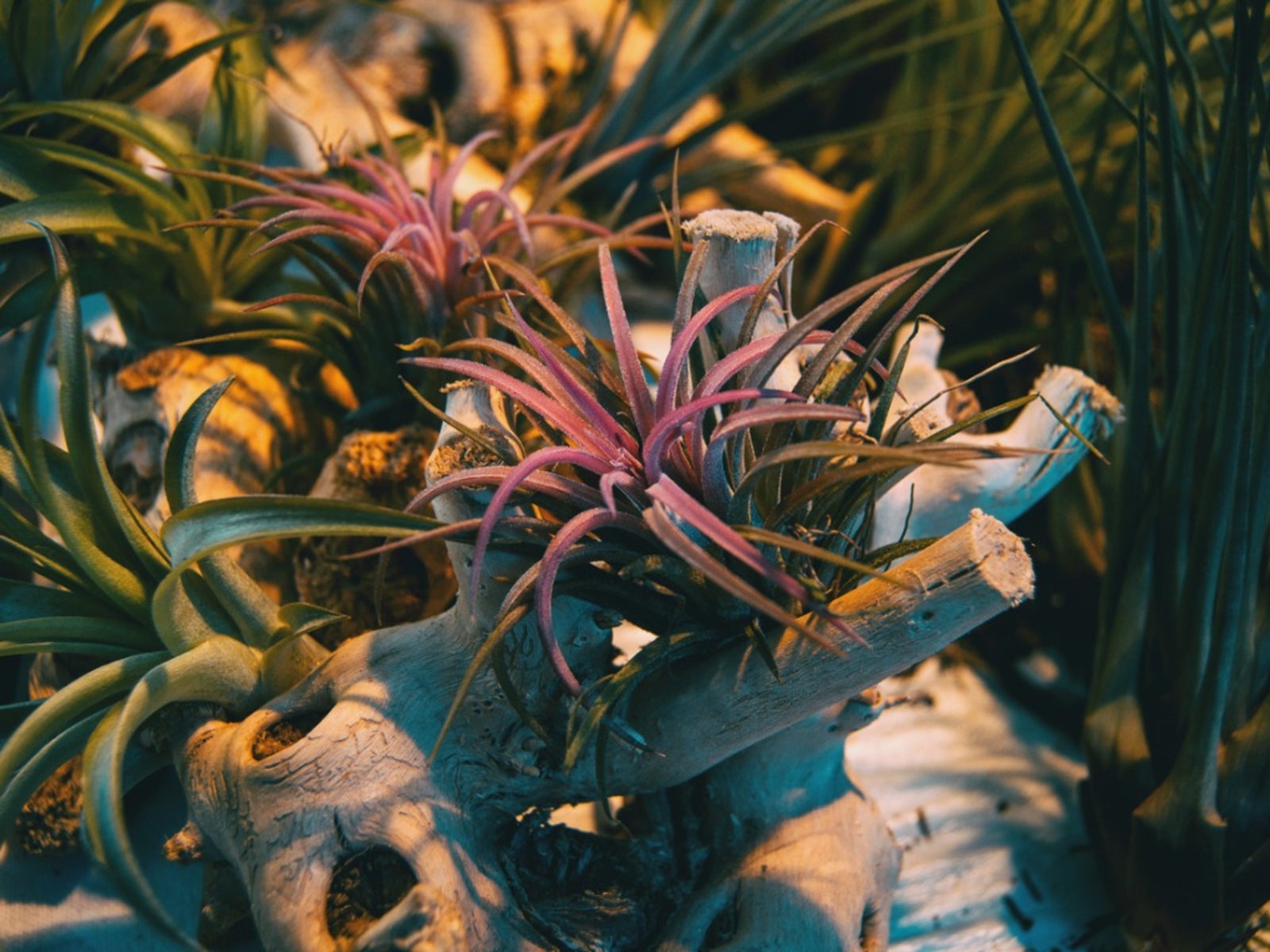Growing Sky Plant: Learn About The Care Of Tillandsia Sky Plant


Low maintenance plants are hard to find. Tillandsias offer a unique form, ease of care, and just a fun way to bring the outdoors into your home. Tillandsia sky plant (Tillandsia ionantha) is a superior specimen that doesn't require traditional pot and soil combinations. This member of the Bromeliad family will grow epiphytically on a variety of organic surfaces. Learn how to grow a Tillandsia for a family-friendly plant that will make you look differently at plant presentation and care.
Sky Plant Bromeliads
Bromeliads are found in most areas of the world but are mostly tropical to subtropical plants. They grow without root support in soil and can even be found in habitat hanging from trees. Tillandsia sky plant is a member of this family and produces a rosette form of leaves that funnel to a central core. The plant is native from Mexico to Nicaragua and naturally grows on trees and even rock faces. Sky plant bromeliads are easy to grow and make interesting presentations on bark or logs. If you are lucky and provide a good climate and care of Tillandsia, it will reward you with purple flowers or bracts in winter.
Care of Tillandsia
Once you get your air plant mounted, the Tillandsia sky plant is one of the easiest plants to maintain. They are usually sold already mounted, but if not, you can attach the plant at its base to a cork bark form, branch, or even shell. You can also place it freely into a terrarium or wedged among some rocks. The key to growing the sky plant is humidity. Mist the plant daily or place sky plant bromeliads in the kitchen or bathroom, where humidity is naturally high. Temperatures should be at least 60 F. (16 C.), but temps around 50 F. (10 C.). in winter will help force flowering. Fertilize weekly with a half dilution of household plant fertilizer applied as a foliar mist. These plants perform best in indirect but bright light.
How to Grow Tillandsia to Share
The propagation of Tillandsia is simple. Growing sky plant from offshoots or “pups” is the best way to create new plants. Pups grow at the base of the mother plant. When they are half the size of the parent, use a sharp knife to divide the pup from the original growth. Plant it in the same manner by fixing to a board, or baby it for a while in a peat mix until the plant is healthy and ready for mounting. You can mount plants with glue, wire, or even just temporarily fix them with paperclips until roots grow into the substrate or mounting form.
Gardening tips, videos, info and more delivered right to your inbox!
Sign up for the Gardening Know How newsletter today and receive a free copy of our e-book "How to Grow Delicious Tomatoes".

Bonnie Grant is a professional landscaper with a Certification in Urban Gardening. She has been gardening and writing for 15 years. A former professional chef, she has a passion for edible landscaping.
-
 Looking For Plants To Give You The Soft And Fuzzies? Try These 5 Fuzzy Leaf Plant Options
Looking For Plants To Give You The Soft And Fuzzies? Try These 5 Fuzzy Leaf Plant OptionsLovers of texture, drama, silver foliage and tactile plants will adore these special sensory garden additions. These fuzzy leaf plant options will leave you all aglow
By Susan Albert
-
 Get Ready For A Summer Of Hummers! Grow These Full Sun Hummingbird Plants and Flowers
Get Ready For A Summer Of Hummers! Grow These Full Sun Hummingbird Plants and FlowersIf you’re lucky enough to enjoy a sunny backyard, make sure you are maxing out on your pollinator opportunities and grow these full sun hummingbird plants and flowers
By Tonya Barnett